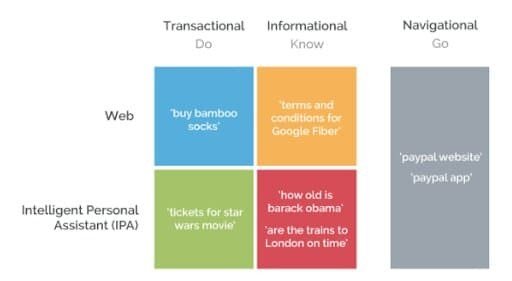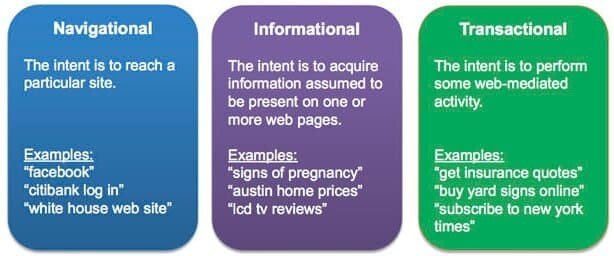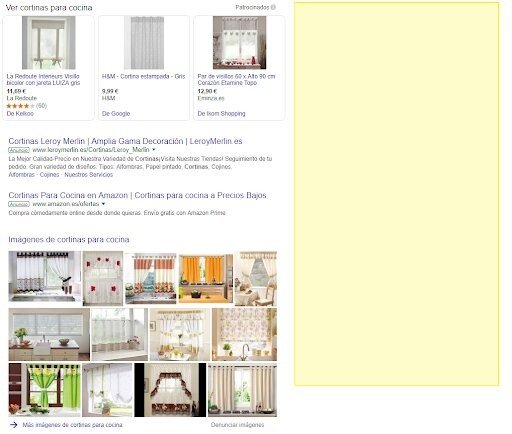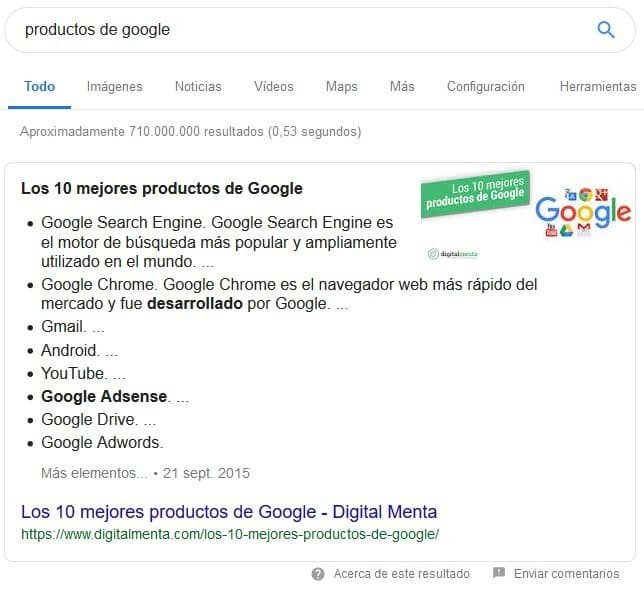Cómo elegir palabras clave SEO
Existen cientos de factores que afectan al posicionamiento orgánico de un sitio web. Uno de los más importantes es contar con contenido relevante y de calidad en las páginas que Google va a incluir en su índice. Cada fragmento de contenido debe aportar un valor al usuario que lo esté leyendo. No va a servir de nada incluir contenido vacío de significado o duplicado. Pero aparte de eso, para que ese contenido también sea útil a la hora de posicionar cada una de las páginas de nuestra web tendremos que haber trabajado previamente en una estrategia de contenido en la que habremos elegido las palabras clave que son más relevantes para nosotros. Elegir las palabras clave de antemano te permite:
- Ser más eficiente, ya que no “perderás el tiempo” escribiendo sobre temas que no son prioritarios a la hora de posicionar tu web.
- Priorizar el trabajo, ya que tendrás un estudio de palabras clave en el que consultar qué palabras tienen más potencial a la hora de atraer tráfico a tu sitio.
Preparación del estudio de palabras clave
Un estudio de palabras clave será la base para trabajar en el contenido de nuestra web. Si contamos con un documento que recoja las palabras clave que hemos elegido para nuestras páginas siempre podremos:
- Comprobar en qué posición estamos para cada una de las palabras clave, a través de herramientas específicas o de Google Search Console, donde puedes filtrar por términos de búsqueda y por URL.
- Analizar la evolución de la posición de cada palabra clave y del tráfico orgánico.
- Asegurarnos de que no estamos usando la misma palabra clave en distintas páginas, lo que podría confundir a los buscadores y hacer que nuestras páginas compitan entre sí para posicionarse por un término en concreto.
- Guiarnos a la hora de optimizar todos los elementos de las páginas, ya que es aconsejable utilizar las palabras clave más relevantes en todos los elementos que vamos a optimizar en una misma página: título, meta-descripción, h1, imágenes, etc.
Para empezar, recopilaremos una lista de palabras que son relevantes para nuestro negocio. Si nuestra web es un e-commerce podemos partir de un listado con el nombre de los productos que vendemos en nuestro catálogo o los nombres de las categorías actuales, por ejemplo.
También, podemos utilizar alguna herramienta que nos permita exportar las palabras clave de cualquier sitio web para obtener una lista de términos para los que están posicionados los sitios web de la competencia, sitios que consideremos referentes en el sector o incluso Wikipedia.
Además de las listas que podamos obtener de varias herramientas de SEO, podemos añadir sinónimos que se nos ocurran, términos relacionados con los que ya tenemos, más genéricos o más concretos y sugerencias de Google relacionadas con cada uno de los términos como las que obtenemos con keywordtool.io. Esta herramienta, además te ofrece sugerencias de preguntas y variaciones de la palabra usando diferentes preposiciones y te da la posibilidad de encontrar sugerencias específicas para Youtube, Amazon, Instagram, etc.
Una vez tengamos una lista con todas la palabras clave, debemos tener en cuenta cuáles son las más buscadas por los usuarios. Existen varias herramientas que dan una estimación de las búsquedas que tiene cada término aunque podemos utilizar la herramienta de palabras clave de Google Ads, Keyword Planner, que permite exportar el volumen de búsqueda de hasta 700 términos.
Cómo elegir palabras clave para un e-commerce
Una vez tengamos un documento con todas las palabras clave para las que nos gustaría posicionarnos tendremos que clasificarlas según la intención de búsqueda que se deduce de cada una. Por ejemplo, cuando alguien busca “comprar cortinas” sabemos que esa persona está buscando cortinas con la intención de comprarlas y estar bien posicionado en este tipo de búsqueda aumenta las probabilidades de que el usuario acabe comprando en tu tienda online. En cambio, si alguien busca “cómo colgar cortinas” sabemos que su intención no es comprar, sino encontrar información. Por tanto, por muchas búsquedas que tenga, si en la página de categoría de cortinas de nuestra web no incluimos información sobre cómo colgar cortinas, no la elegiremos.
Podemos clasificar las palabras clave según la intención de búsqueda:
Teniendo en cuenta la intención de búsqueda de cada término va a ayudarnos a elegir la mejor palabra clave para cada una de las páginas que queremos posicionar.
Sin embargo, la intención de búsqueda que hay detrás de una palabra clave no siempre es tan evidente. Por ejemplo, si alguien busca “cortinas modernas” puede que esté buscando comprar unas cortinas o que simplemente busque ideas para redecorar su comedor en un futuro. En cualquier caso puede ser una oportunidad para posicionar nuestra tienda online. Podríamos elegir esa palabra clave como tema principal de un artículo del blog y, aunque el usuario no busque comprar unas cortinas en ese momento, daremos a conocer nuestra tienda online para futuras compras no solo de cortinas, sino de cualquier otro producto de nuestro e-commerce.
Algo que puede ayudarnos en estos casos es comprobar qué tipo de resultados muestra Google para cada una de las palabras clave. Google cada vez es mejor reconociendo la intención de búsqueda que hay detrás de cada término y por eso no siempre muestra el mismo tipo de resultados, lo que afectará, por ejemplo, al número de resultados orgánicos que se muestran y por tanto, al volumen de tráfico que podemos recibir de cada búsqueda.
Por ejemplo, en el caso de “cortinas de cocina” y “cortinas para cocina”, los dos términos tienen el mismo volumen de búsquedas mensual. Sin embargo, la página de resultados de búsqueda es diferente para cada término.
Resultados de “cortinas de cocina”:
En el caso de “cortinas para cocina” vemos que no aparecen anuncios en la parte derecha de la página, por lo que es más probable que el usuario haga clic en los resultados orgánicos.
Por otro lado, al hacer este tipo de comprobaciones podemos detectar nuevas oportunidades o amenazas. Por ejemplo:
- Si los primeros resultados orgánicos son imágenes, tenemos la oportunidad de posicionar imágenes para esta búsqueda y obtener tráfico de los usuarios que hagan clic en ellas. Además, el hecho de posicionar una imagen ayudará a los buscadores a entender que nuestro sitio es relevante para esa búsqueda.
- Si los primeros resultados son un mapa con tiendas y nosotros no tenemos una tienda física, nuestros resultados orgánicos tendrán menos oportunidades de recibir tráfico. Y en caso de contar con una tienda física, tenemos la oportunidad de aparecer en Google Maps.
- Si se trata de búsquedas que devuelven un servicio de Google como Google Vuelos o no requieren que el usuario entre en ninguna página, como ocurre al buscar una definición, deberemos elegir palabras clave alternativas que, aunque tengan un menor volumen de búsqueda, tengan un mayor potencial de atraer tráfico.
Cuando sepamos qué palabras clave son las más buscadas y además son las más relevantes y se corresponden con nuestros objetivos podremos ponernos a desarrollar el contenido. Podemos asignar a cada palabra o grupo de palabras clave una URL. Dependiendo de la intención de búsqueda decidiremos si la URL se corresponde con una categoría de nuestra tienda online o, en caso de que se trate de palabras clave más informativas podemos elegirlas como posibles temas para artículos de nuestro blog.
Identificar las palabras clave más importantes es crucial. No puedes posicionar tus páginas para todas las palabras clave que encuentres. Las palabras que elijas van a determinar:
- La rapidez con la que vas a conseguir posicionarte. Si eliges palabras clave con más competencia tardarás más en posicionarte y necesitarás invertir más recursos en ello que si eliges palabras clave con menos competencia. Todo depende de tus objetivos.
- Tu público objetivo. Si tus productos o servicios son específicos para un tipo de cliente, puedes elegir palabras clave específicas para ese tipo de usuarios. En principio resultará más fácil posicionar tus páginas para palabras clave más específicas (long-tail) que para palabras clave genéricas.
Cómo elegir las palabras clave de un artículo
Si estás trabajando en el contenido de un blog en lugar de una tienda online y tienes dudas a la hora de elegir las palabras clave de un artículo te recomendamos:
- Asegurarte de elegir palabras clave que no están siendo utilizadas ya en otros artículos de tu web. Una manera de comprobarlo es teniendo a mano la lista de términos que tienen impresiones en tu cuenta de Google Search Console o realizando una búsqueda en Google de: “palabra clave” site:tusitioweb.com. Esto evitará que haya más de una página en tu web compitiendo por posicionarse. Si ya tenemos una página que tiene impresiones para una palabra clave determinada, puede que sea más apropiado actualizar el contenido de ese artículo en lugar de crear uno nuevo.
- Comprobar el tipo de resultado que aparece para esas palabras clave antes de escribir un artículo. En el caso de palabras clave informativas puedes detectar oportunidades de obtener más tráfico si los resultados aparecen en formato de “featured snippets”.
Este tipo de resultado puede atraer mayor cantidad de tráfico a tu sitio sobre todo si aparece una lista que no está completa, por lo que el usuario tendrá que entrar en nuestra página para poder leer la lista completa.
En resumen, la elección de palabras clave en SEO no depende solo del volumen de búsquedas estimado sino que hay muchos otros factores que nos van a ayudar a tomar una decisión y a hacer más efectiva nuestra estrategia de contenido.








